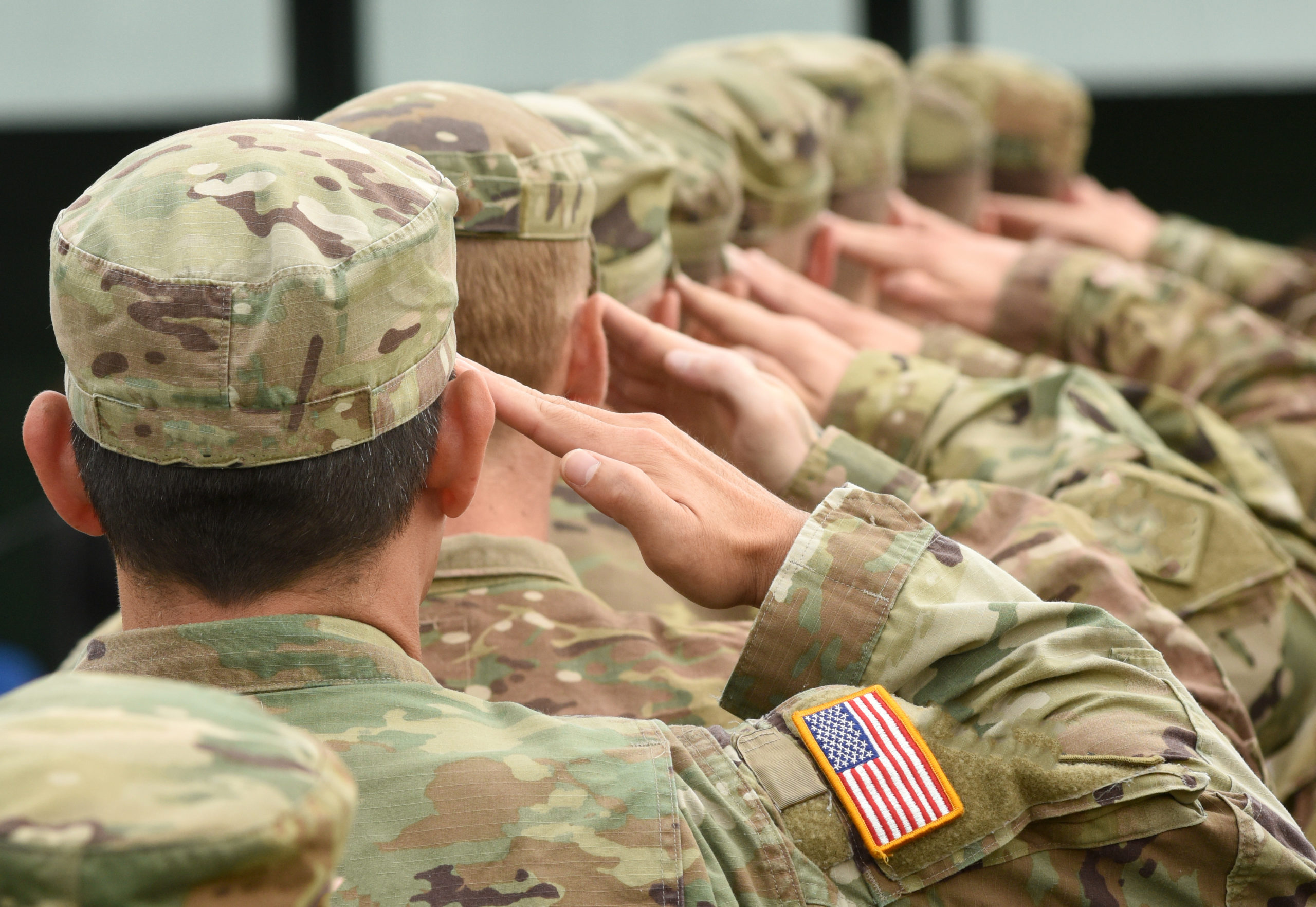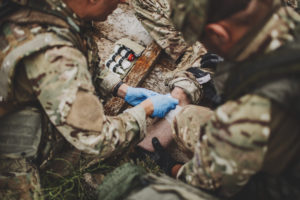Serving our country in the armed forces is a noble and a brave commitment to America, our people, and the preservation of democracy and freedom. The men and women who choose this path are valued, and we are grateful for your service. Without our military veterans our country and our world would be extremely vulnerable, and our way of life in America as we know it could quickly cease to exist.
Guarding our country is a risky job and a dangerous occupation to choose. Whether you do it with a gun on the ground, behind a desk, on a boat, plane, tank, or submarine, you are still pledging your life to serve and protect. This commitment you made to guard our wellbeing may come with a price for you and your family that civilians just do not understand.
This VR Trauma Relief program is designed to help you feel better about any mental and emotional issues that are bothering you. It is designed to be done in the privacy of your own home or room or bunk and it takes about eight minutes. Your whole family can use it (not for children under five) and it can be repeated every three days for as long as you need it. It is up to 94% effective in reducing the emotional stress response to whatever you choose to focus on. You are in total private control of the process.
Studies indicate one in three veterans show symptoms of depression and one in five require further evaluation for major depression. As many as one in eight will require treatment with drugs or therapy. This compares to about 9% of non-military Americans who report they are depressed, and 3.4% who say they suffer from major depression according to the CDC. These numbers are only part of the real story. The VA set the veteran suicide rate at 17 per day in 2020.
Veterans’ lives are inherently stressful from basic, training exercises and the daily risk required by the job. It can be stressful to be in the military and it can be equally stressful to leave it. The following are suggestions for some of the issues you may want to address in the VR program, or you can use your own words that best describe your trauma. Remember to focus on sights, sounds, smells and senses to get your brain fully engaged.
PLEASE NOTE: IF YOU ARE SUFFERING FROM PTSD AND ARE BEING TREATED PLEASE CONSULT YOUR PROFESSIONAL BEFORE
USING THIS PROCESS. IF YOU ARE SUICIDAL OR CONSIDERING SELF HARM PLEASE CALL THE SUICIDE HOTLINE.
Here are some issues that may for or you to focus on in the VR glasses:
I miss my family and I feel lonely
I’m worried about my family when I’m gone
I just want to go home
I’m worried about my partner and my kids getting sick in this pandemic
I can’t get home to help if my family needs me
I’m in a dangerous location (assignment) and sometimes I feel scared
The people around me are getting hurt or killed
This deployment is a very risky assignment
Why was I the one who made it?
I feel so guilty because I ‘m the one who lived
I don’t fit in my unit and I feel like an outcast
I’m afraid they are going to ship me out again
I’m afraid I’ll let my team down
I’m scared to tell my family we have to move again
I feel so sad when I see how much my kids miss their old school and friends
I miss my old unit and the place I used to live
I don’t know what to do now that I’m out of the service
My service skills don’t translate well in civilian life
I’m afraid I’ll never find a job
My military work was so much better, I felt comfortable doing it
I hate looking for a job and interviewing
My work is so different now that I’m back
I’ve lost my tribe and I miss them
I’m not essential anymore and I miss the feeling of really being needed
I feel lost without my job and my unit
The stuff the military provided for me when I was deployed is suddenly critically important like housing
I have to completely reprioritize my life
I’m home now but I feel like an outsider in my own family
I feel depressed and anxious even though I know I’m safe at home
I can’t stop thinking about what happened when I was deployed
I keep focusing on mistakes I made and the ways I failed my team
I can’t sleep and I’m feeling more and more disconnected
I can’t feel anything, it’s just like I’m in a fog that won’t go away
My mind races all the time, and it will just never shut up
I’m afraid I’m headed for a divorce
My kids are like strangers to me
I can’t handle the stress of the kids anymore
I keep losing my temper over really stupid stuff
I don’t fit at home anymore
I really can’t sleep
It’s so hard for me to even get out of bed
Veterans Trust Our Virtual Reality Techniques for Stress Relief
These are just suggestions and hopefully they inspire you to identify what it is that you really feel and what you need help with. Remember to use sights, sounds, smells and feelings when you focus in the VR session. If any negative emotional response still persist after the first VR session you can simply repeat the same VR session every three days until you no longer have a negative emotional response. Some issues you may be facing are ongoing in your life and may need to be addressed in VR periodically to maintain emotional stability and neutrality. Our virtual reality trauma relief is designed to help any number of issues, including those specific to military veterans.



